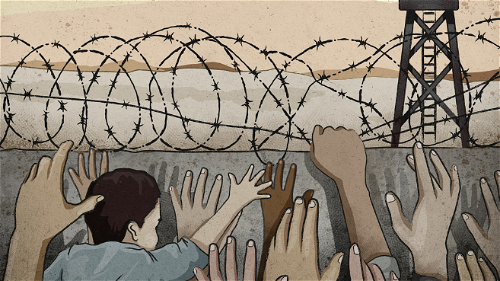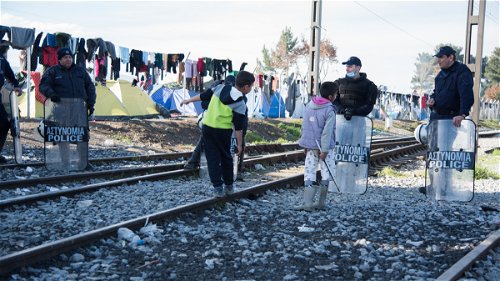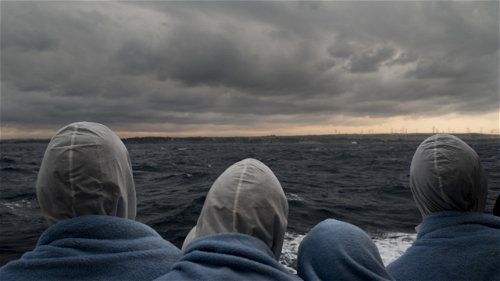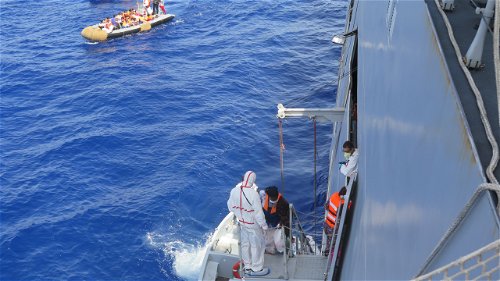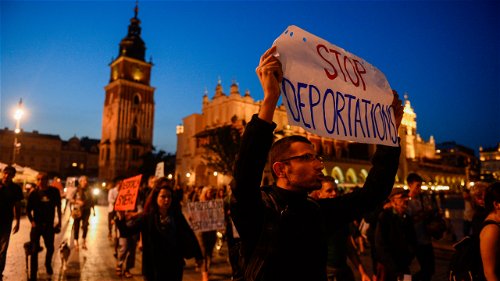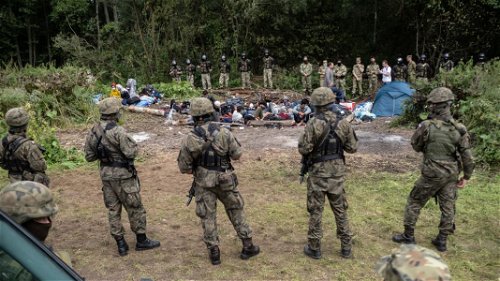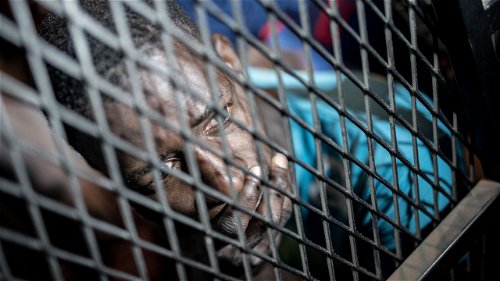
Libië: Beschamend Europees beleid veroorzaakt een toename van de detentie van vluchtelingen en migranten
Door de toename van vluchtelingen en migranten die op zee onderschept worden door de Libische autoriteiten zijn in de voorbije twee maanden alleen minstens 2600 mensen overgebracht naar detentiecentra, waar ze in verschrikkelijke omstandigheden leven, en blootgesteld worden aan foltering en afpersing, zo zegt Amnesty International.
De wereldwijde mensenrechtenorganisatie beschuldigt Europese overheden van medeplichtigheid voor deze misbruiken. De Europese overheden bieden actieve steun aan de Libische autoriteiten om mensen te onderscheppen op zee en terug te sturen naar detentiecentra in Libië.
“De EU weigert onder ogen te zien welk lijden veroorzaakt wordt door het roekeloos uitbesteden van grenscontrole aan Libië”, aldus Heba Morayef, Afrika en Midden-Oosten director van Amnesty International.
“Wanneer de Europese leiders er alles aan doen om te verzekeren dat de Libische kustwacht zo veel mogelijk mensen onderschept, sturen ze die migranten en vluchtelingen rechtstreeks terug naar de Libische detentiecentra die berucht zijn voor misbruiken en foltering. Niemand zou teruggestuurd mogen worden naar Libië”.
Ten minste 7000 vluchtelingen en migranten zijn momenteel aan het verkommeren in Libische detentiecentra waar misbruik alomtegenwoordig is, en voedsel en water zeldzaam. Dit is een sterke toename sinds maart, toen er volgens de Libische autoriteiten nog 4400 vluchtelingen en migranten gevangen gehouden werden.
“De EU mag de Libische kustwacht niet langer gebruiken om mensen vast te houden in Libië. In de plaats daarvan moet de EU aandringen op het sluiten van detentiecentra, vluchtelingen hervestigen in Europa, en UNHCR toelaten om hulp te bieden aan alle vluchtelingen in Libië.”, aldus Heba Morayef.
Meer informatie leest u in het internationale persbericht
Since late 2016, EU Member States – particularly Italy – have implemented a series of measures to close off the migratory route through Libya and across the Mediterranean, including boosting the capacity of the Libyan Coast Guard to intercept migrants and refugees and return them back to Libya.
Italy and other European countries have provided the Libyan Coast Guard with equipment, including at least four speedboats, as well as with training and other forms of support. In early 2018, the Italian Coast Guard started handing over the coordination of rescue operations in international waters near Libya to the Libyan Coast Guard – a move only made possible by support provided by Italian Navy ships and personnel stationed in Libya.
In April 2018 alone, the Libyan Coast Guard intercepted 1,485 women, men and children at sea and brought them back to Libya, bringing the total number of those intercepted to almost 5,000 individuals in the first four months of this year, according to the IOM. Once intercepted, refugees and migrants are transferred to detention centres run by Libya’s Department for Combatting Illegal Migration (DCIM). The centres have become infamous for holding migrants and refugees in arbitrary and indefinite detention, and subjecting them to serious human rights violations, as revealed by Amnesty International in a report in December 2017.
Interviewed by Amnesty International researchers, migrants and refugees described horrific abuse including torture, forced labour, extortion and unlawful killings at the hands of the Libyan authorities, smugglers and armed groups.
In early May 2018, Medecins Sans Frontieres issued a press release sounding the alarm about the humanitarian situation for 800 people held in a dangerously overcrowded detention centre in the city of Zuwara, western Libya. The medical NGO said the detainees lacked access to food or water and were confined to spaces so small people could barely lie down.
“The EU and its member states must reset their cooperation with Libya and condition any support to Libya, financial or otherwise, on the full cooperation of the Libyan authorities to respect the rights of refugees and migrants in the country. This must start with the release of those currently held in detention centres and the end to the automatic detention of refugees and migrants,” Heba Morayef said.
In addition, all released migrants and refugees must be provided with protection and assistance while they remain on Libyan soil, Amnesty International said.
The Libyan authorities should also negotiate a Memorandum of Understanding with UNHCR to recognize its status in Libya and enable it to carry out its full mandate.
EU Member States must also commit themselves to an increased resettlement quota to guarantee the protection of refugees who otherwise are left abandoned in Libya.
Background:
The new data on the number of migrants and refugees in detention in Libya indicates a worrying change in the trend that showed a previously sharp drop in numbers of people in detention, following the IOM-led humanitarian evacuations and returns that took place since October 2017.
This year alone, IOM has evacuated 5,620 people from Libya as part of its “voluntary” returns programme, which offers people in migrant detention centres the possibility of returning to their home country. While this programme offers a lifeline to many, it may push people in need of international protection to return to their home country where they may face serious human rights violations.
